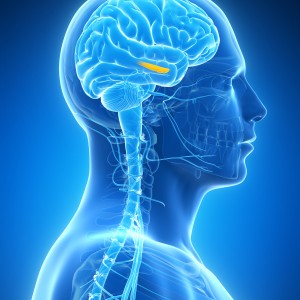Clinical Trial Reveals Promising Brain Therapeutic Drug for the Pre-Dementia Stage of Alzheimer’s Disease
Written by |

 Pharmaceutical company AgeneBio recently announced the publication of results of a Phase 2 clinical trial based on the company’s therapeutic product AGB101 for the pre-dementia stage of Alzheimer’s disease in the journal NeuroImage: Clinical. The study entitled “Response of the medial temporal lobe network in amnestic mild cognitive impairment to therapeutic intervention assessed by fMRI and memory task performance” was conducted by researchers at Johns Hopkins University in Baltimore and supported by the National Institutes of Health (NIH).
Pharmaceutical company AgeneBio recently announced the publication of results of a Phase 2 clinical trial based on the company’s therapeutic product AGB101 for the pre-dementia stage of Alzheimer’s disease in the journal NeuroImage: Clinical. The study entitled “Response of the medial temporal lobe network in amnestic mild cognitive impairment to therapeutic intervention assessed by fMRI and memory task performance” was conducted by researchers at Johns Hopkins University in Baltimore and supported by the National Institutes of Health (NIH).
Alzheimer’s disease is an age-related, neurodegenerative disorder where individuals initially experience memory loss and confusion that gradually leads to behavior and personality changes, a decline in cognitive abilities, and ultimately the severe loss of mental function. Alzheimer’s disease is characterized by the formation of amyloid plaques in the brain and the loss of neurons that are responsible for memory and learning. It is estimated that by age 85, one in every three individuals will have Alzheimer’s disease. Currently, 25 million people worldwide, including 5.6 million Americans, are estimated to suffer from a symptomatic, pre-dementia stage of Alzheimer’s disease called amnestic mild cognitive impairment (aMCI), which is characterized by a significant memory loss.
AgeneBio has developed the therapeutic product AGB101 as a once-a-day low-dose formulation based on levetiracetam, which is a safe anti-epileptic medication that has been on the market for more than a decade. AGB101 contains a low dose of levetiracetam, approximately one-fifteenth of the dose commonly prescribed for epilepsy.
It is known that overactivity in the hippocampus of aMCI patients leads to cognitive impairment and progression to Alzheimer’s dementia. AGB101 drug targets the hippocampal overactivity. The randomized, double-blind Phase 2 clinical trial conducted used functional magnetic resonance imaging (fMRI) with blood-oxygen-level dependent (BOLD) contrast imaging to evaluate the efficacy of the drug therapy at three different doses on both memory performance and brain function. In total, 69 patients including 54 with aMCI and 17 controls were assessed.
Researchers found that AGB101, at a provided dose of 62.5 or 125 mg daily, was able to reduce the excess of hippocampal activity in the brain to a normal range, restoring brain network function, and to significantly improve memory performance in aMCI patients compared to the placebo. A higher dose of 250 mg had no significant benefit for the patient’s condition.
“Based on our research to date, AGB101 maps across all preclinical and clinical studies, consistently restoring normal brain function and preserving memory. Given the consistent translation of our research to date, we expect our upcoming AGB101 Phase 3 trial to demonstrate efficacy in preserving cognition and memory in aMCI patients while delaying progression to the clinical stage of Alzheimer’s dementia,” said the study’s senior author Dr. Michela Gallagher in a news release. AgeneBio expects to initiate the AGB101 Phase 3 clinical trial in the second half of 2015. If AGB101 is approved, it will represent the first and only therapeutic product capable of reducing hippocampus overactivity and potentially slowing neurodegenerative progression and delaying the onset of Alzheimer’s dementia.
“The AGB101 Phase 2 results show that intervening during aMCI, the symptomatic pre-dementia stage of Alzheimer’s, offers an excellent prospect to delay disease progression,” said the president and CEO of AgeneBio, Jerry McLaughlin. “More than five million Americans battle aMCI, and the pathway to Alzheimer’s dementia is almost assured with more than seven of every 10 aMCI patients progressing in less than seven years. If approved, we believe this breakthrough approach to delaying the onset of Alzheimer’s dementia offers both a significant commercial opportunity and momentous social value to patients and families battling this debilitating disease.”





